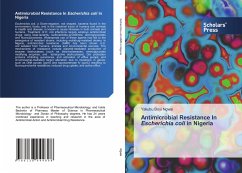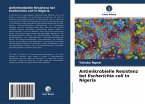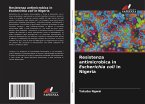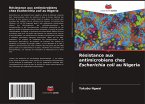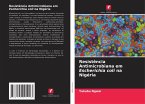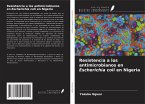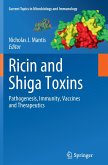Escherichia coli, a Gram-negative, rod shaped, bacteria found in the environment, foods, and in the intestinal tracts of humans and animals in health and disease, is known to cause illnesses in both animals and humans. Treatment of E. coli infections largely employs antimicrobial drugs using beta-lactams, sulfonamides-prymidines, aminoglycosides and fluoroquinolones. Widespread use of these agents has led to the emergence of resistant strains, including multidrug-resistant strains. In Nigeria, antimicrobial resistance (AMR) has been shown in E. coli isolated from humans, animals and environmental sources. The mechanisms of resistance include plasmid-mediated production of enzyme destructases (such as beta-lactamases, aminoglycoside modifying enzymes, and tetracycline destructases), Qnr protection proteins inhibiting quinolones, and activation of efflux pumps; and chromosomal-mediated target alteration due to mutations in genes, such as DNA gyrase (gyrA) and topoisomerase IV (parC) resulting to fluoroquinolones resistance; reduced drug uptake; and active efflux.
Bitte wählen Sie Ihr Anliegen aus.
Rechnungen
Retourenschein anfordern
Bestellstatus
Storno

